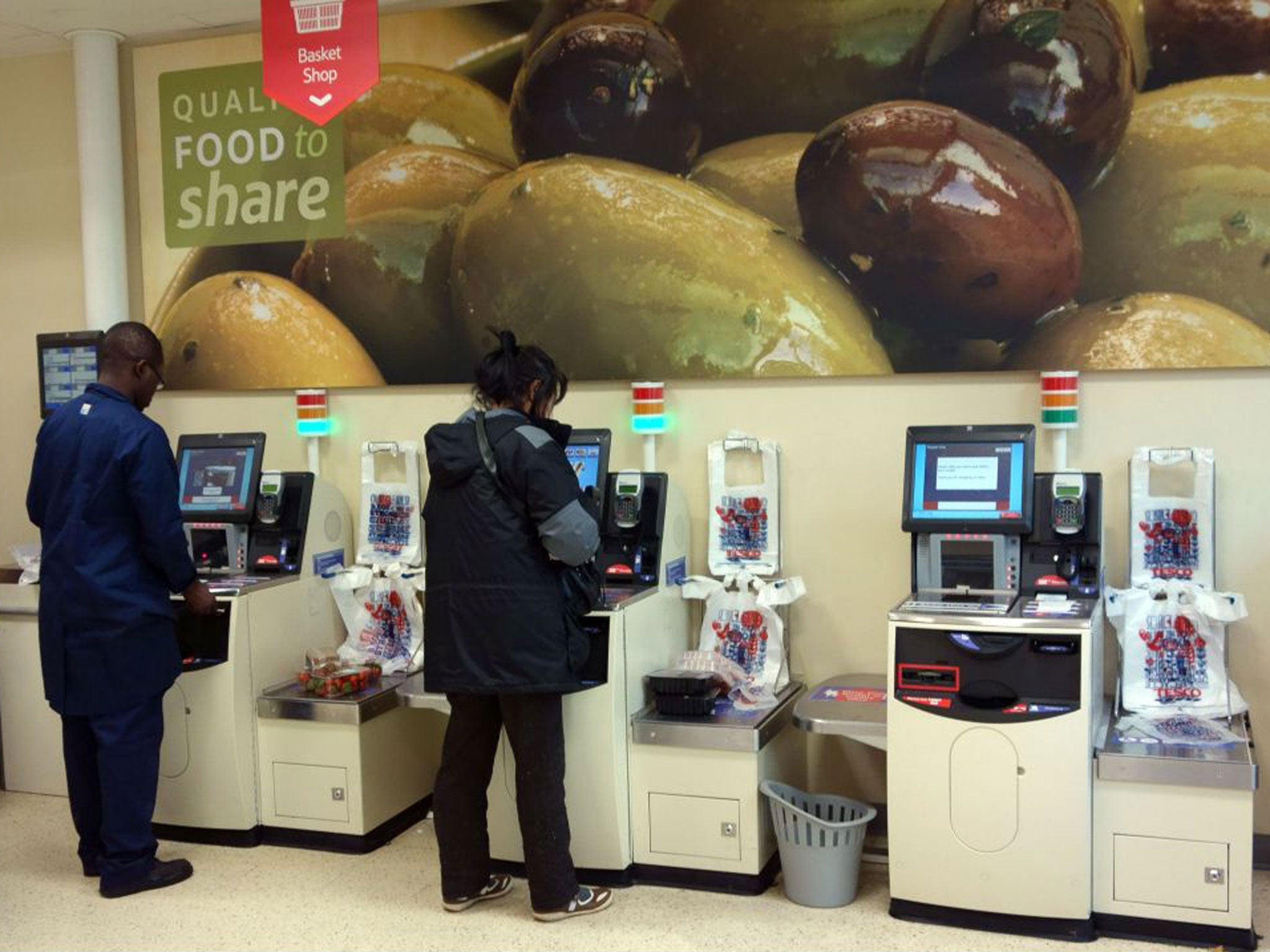Are self-service machines in our supermarkets really the way forward?
Automatic checkouts don't just annoy people – they alienate them as well, writes Brendan Sharp, 22, in a piece that has won him this year's Wyn Harness Prize for young journalists

Your support helps us to tell the story
From reproductive rights to climate change to Big Tech, The Independent is on the ground when the story is developing. Whether it's investigating the financials of Elon Musk's pro-Trump PAC or producing our latest documentary, 'The A Word', which shines a light on the American women fighting for reproductive rights, we know how important it is to parse out the facts from the messaging.
At such a critical moment in US history, we need reporters on the ground. Your donation allows us to keep sending journalists to speak to both sides of the story.
The Independent is trusted by Americans across the entire political spectrum. And unlike many other quality news outlets, we choose not to lock Americans out of our reporting and analysis with paywalls. We believe quality journalism should be available to everyone, paid for by those who can afford it.
Your support makes all the difference.Editor's Note: This award was set up in honour of one of this newspaper's finest journalists, whose death in 2007 was a terrible shock. Wyn embodied values we hold dear, and we wanted to recognise his legacy by nurturing young talent. Brendan Sharp's article was notable for two reasons: clarity of argument and aptness of subject. The threat to manual workers from automation is a challenge facing all advanced societies. He addresses it in a compassionate and cogent way, and looks destined for a long and glorious career in journalism. Best of luck, Brendan – and well done. Amol Rajan
In 2008, fewer than 100,000 self-service checkouts were in operation worldwide. Tesco was the first major supermarket to introduce them in the UK, aiming to make the customer checkout experience more efficient. Staggeringly, more than half a million now dominate our leading supermarkets. Are self-service machines in supermarkets really the way forward? To the leading chains – Marks & Spencer, Sainsbury's and Tesco – it seems enough that self-service machines represent the concept of "progress". But do they? For many customers, self-service is likely to be frustrating, irritating and alienating. Having worked as a self-service assistant in the centre of Cambridge, this should not be the case.

The very fact that I was a self-service "assistant" (I still carry the scars) shows their fundamental flaw. The machines mean that staff have constantly to come to the assistance of customers who stand gesturing and cursing at failed technology. For whoever draws the short straw to man these beasts during peak hours, it's simply "the PITTS" or "Post Irrational Techno Torture" – a government health warning should be clearly displayed at each station.
Many products such as meat and poultry are supplied by local farmers. Because all the food comes from different suppliers, the packaging is printed with a unique identifying code. So the code has to be entered when any customer tries to scan it. Naturally, customers are confused when prompted with the sign "Assistance Required. Product Restriction", with not a glimmer of explanation as to the problem. How should they suspect that they have themselves to provide such an obscure code for their particular leg of lamb? Not many people possess psychic abilities; besides, why should customers have to go to these lengths when they are not being paid to do so?
Old-age pensioners can often be seen approaching these machines with as little confidence as they would if walking up to a hoodie on a dark night. Their stark sense of inferiority – especially as compared with the young, who are assumed to be techno wizards – is quite upsetting, because they are being subtly humiliated. The worst thing about the attempt to pressure people into self-service is that some pensioners can be so lonely that a cheerful chat with the checkout assistant is valued in a way that is painfully obvious. A smile, being asked how they are by a polite, amiable and perfectly capable human being, and not having to struggle awkwardly with packing their bags, all make for civilised shopping, which can be consoling in a way that an encounter with a failing machine clearly is not.
We would do well to remember what Marx wrote about alienation – where we are dehumanised and essentially no better than machines or commodities. The self-service obsession of the supermarket manipulates customers and staff alike into being mere parts of the profit mechanism. The old are confused and vulnerable. The young, with their headphones, just sigh and tut resignedly as they drone incessantly like demented clockwork toys.
With such a high unemployment rate, combined with the liability of self-service machines, perhaps there should be a mandatory number of manned customer tills to cater for the varying demands of our retail culture. In a diverse cultural society, supermarkets need to have a team to integrate customers of varying nationalities. Speaking from experience, the sad truth is that monotonous, malfunctioning machines outnumber over-qualified and undervalued sales assistants. At the crux of it all, customers crave efficiency, yet, ironically, they are the ones putting in the overtime. Many have left, miffed, manipulated and malnourished. The majority have enough on their plate as it is. The sooner supermarket chains start scanning that through their system, the better.
Join our commenting forum
Join thought-provoking conversations, follow other Independent readers and see their replies
Comments